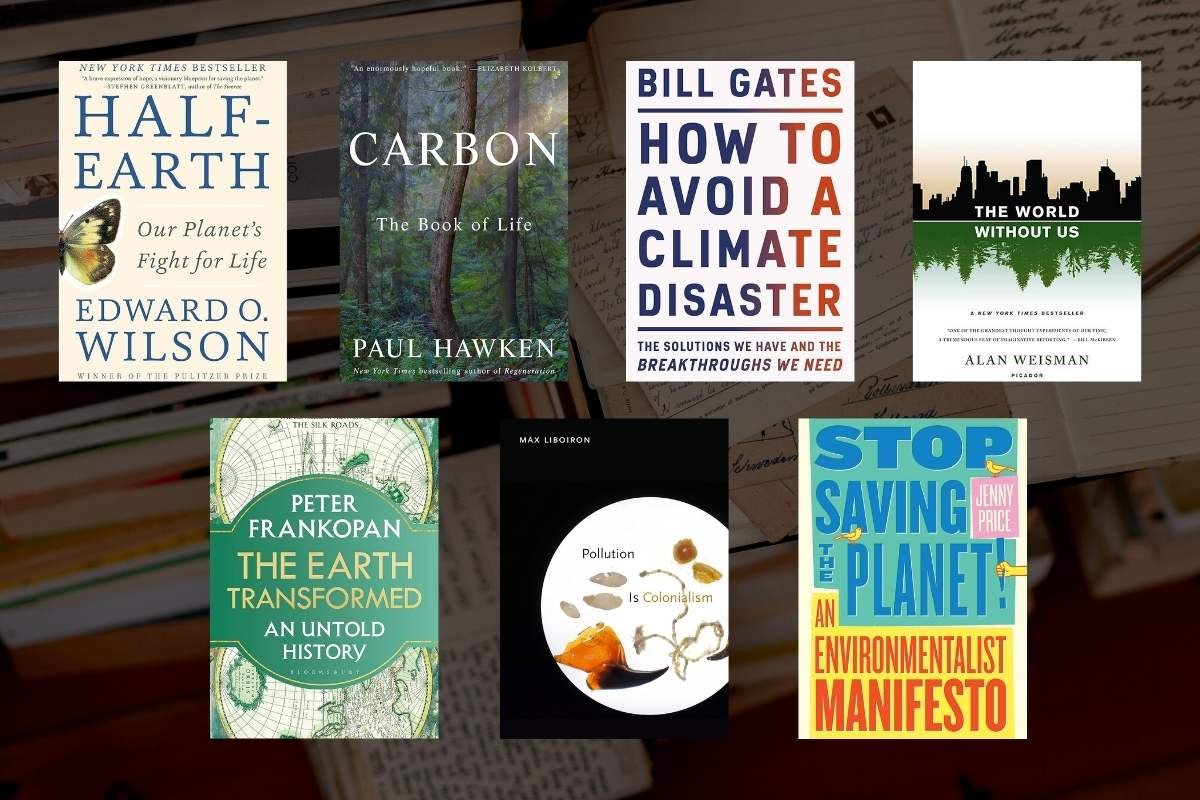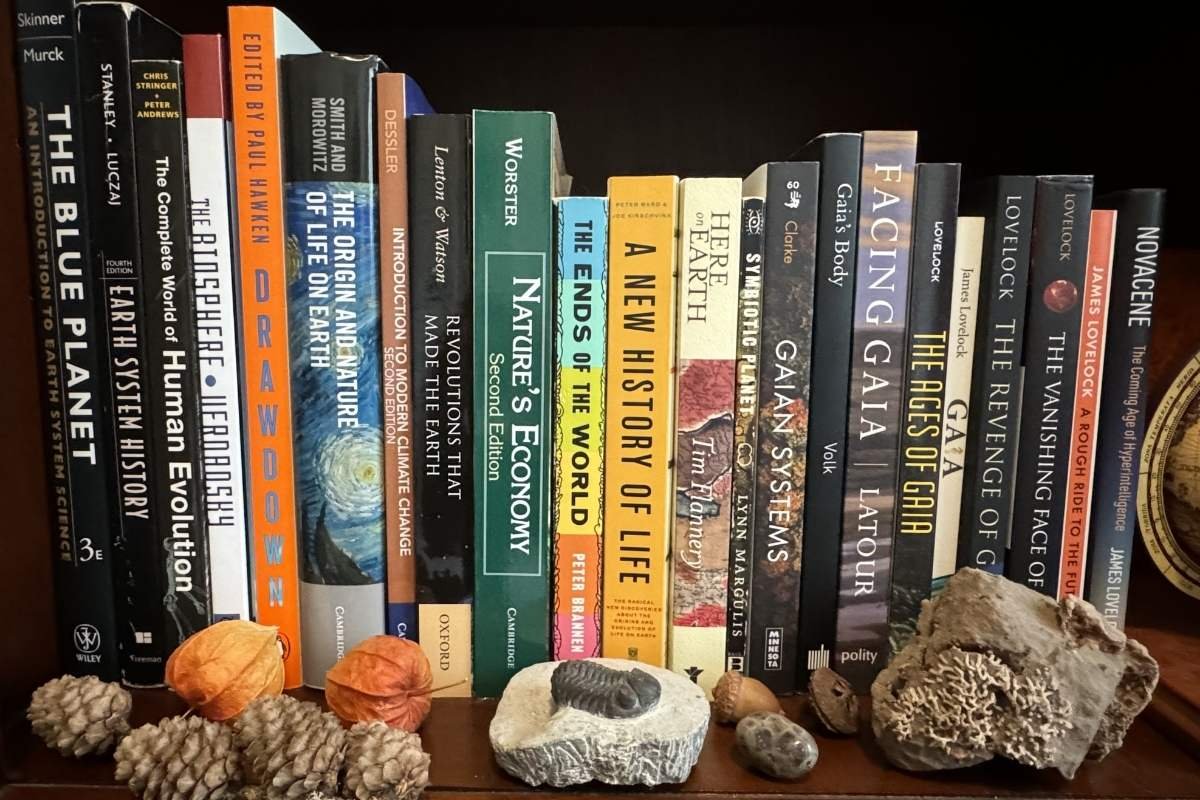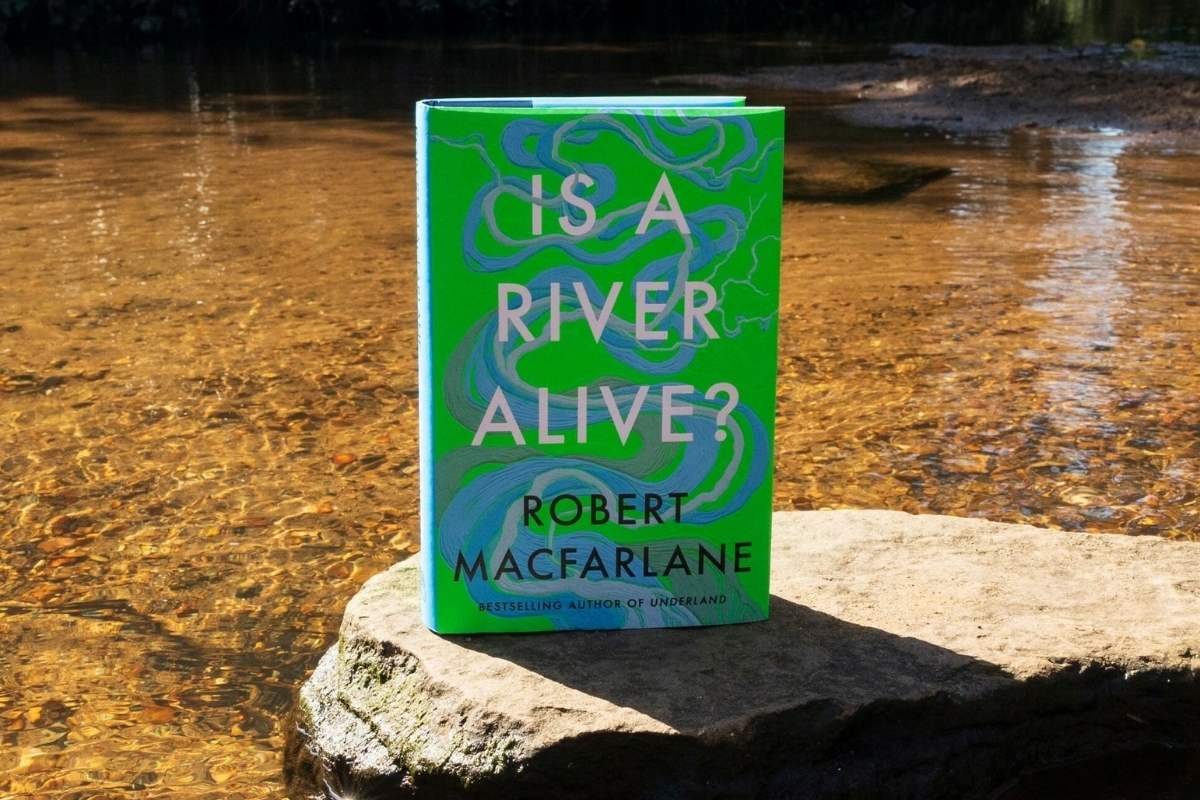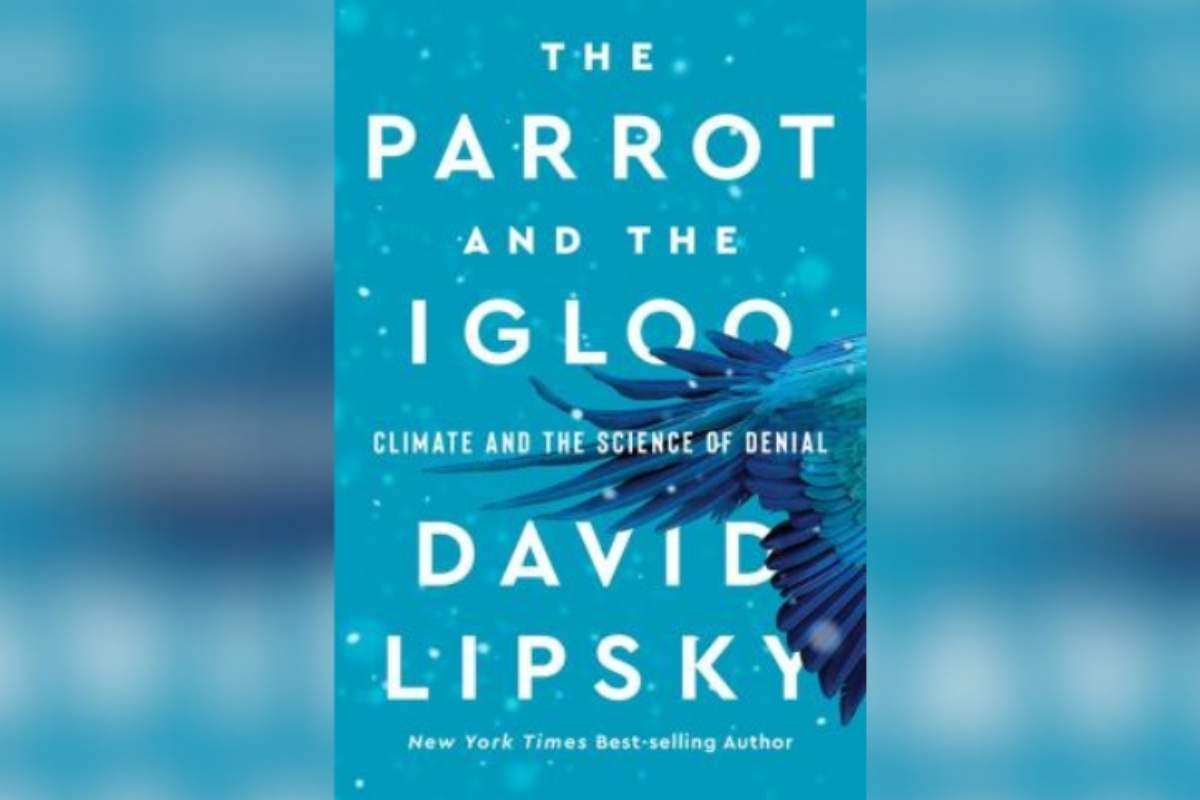copyright class="elementor-search-form" action="https://thelifesciencesmagazine.com/" method="get">
Think You Know Nature? These 30 Environmental Science Books Might Prove You Wrong
These must-read environmental science books offer not just knowledge as they are survival guides, ethical compasses, and rallying cries for a sustainable tomorrow.

- Source: worlduniversityofdesign.ac.in
Have you ever considered the intricate movements of ecosystems, the hidden message of the Earth, or the invisible elements that shape the world? They are just a page away, found in environmental science books. These books are not simply textbooks, but gateways to understanding some of nature’s greatest mysteries. Within the pages of these books are the roots of everything from the microscopic life resting in a teardrop of water to the grand, interdependent systems that regulate Earth’s climate.
Exploring environmental science books can present a fresh view on how human actions inform and impact the environment, and how we are dependent on the environment. Each page may reveal an unknown fact, it may clarify or explain a complex ecological cycle, or it may introduce you to a sustainable method that you may not have considered. They challenge us to learn and surprise us from simply observing to actively understanding the living world around us.
Within this article, we have curated a list of a few must-read books on environmental science, sharing some vital insights. Let’s enter the pages of these books to find out the secret of nature. Are you ready to flip through them?
30 Must-Read Environmental Science Books:
Environmental science is a vast subject that comprises various elements and factors. Following is the list of books that offer essential insight about our planet entirely and also about climate and nature.
1. Half-Earth by E.O. Wilson
Among the crucial environmental science books, Wilson’s “Half-Earth” proposes a bold vision: dedicating half the Earth’s surface to nature to preserve biodiversity. This crucial entry in the books of environmental science challenges us to rethink conservation on a global scale.
Notable Quotes: “If humanity is to successfully navigate the bottleneck of the next fifty years, we must move on to the Half-Earth solution, with all deliberate speed, and make it part of our conservation strategy now.”
- Lessons to learn: The critical importance of large-scale conservation efforts, the interconnectedness of all life, and the idea that humanity has a moral imperative to protect biodiversity.
2. Carbon: The Book of Life by Paul Hawken
This book explores the fundamental role of carbon in all life processes and its current disruption by human activity. It’s a comprehensive yet accessible look at how carbon cycles through our planet, from cellular respiration to climate change.
Notable Quotes: “Carbon is not the enemy; it is the miraculous element that makes life possible. The problem is not carbon, but our management of it.”
- Lessons to learn: A deeper understanding of the carbon cycle, the intricate balance of Earth’s systems, and the nuanced perspective needed to address climate challenges, moving beyond simply demonizing carbon. This is a foundational text among essential environmental science books.
3. Becoming Earth: How Our Planet Came to Life by Ferris Jabr

Notable Quotes: “Earth is not merely a stage for life, but a full-fledged character in life’s unfolding drama.”
- Lessons to learn: The immense timescales of planetary evolution, the co-evolution of life and Earth’s geological processes, and the profound interconnectedness that makes our planet uniquely habitable.
4. How to Avoid a Climate Disaster by Bill Gates
Bill Gates provides a pragmatic and solution-oriented roadmap for achieving net-zero greenhouse gas emissions. The book breaks down the scale of the climate problem and offers actionable strategies across various sectors, focusing on innovation and policy.
Notable Quotes: “We need to invent new technologies, deploy them at scale, and make them affordable for everyone.”
- Lessons to learn: The technological and policy pathways required to combat climate change, the necessity of a systems-level approach, and the role of innovation in driving sustainable solutions. It’s a crucial contribution to modern environmental science books.
5. The World Without Us by Alan Weisman
This thought-provoking book speculates on what would happen to Earth if humanity suddenly vanished, revealing the surprising resilience of nature and the eventual fate of our structures and artifacts. It’s a unique perspective on our environmental impact and legacy.
Notable Quotes: “The instant the last human died, the built world would begin to crumble.”
- Lessons to learn: The immense and often surprising impact of human civilization on the planet, the natural world’s capacity for recovery, and a humbling perspective on the transient nature of our presence.
6. The Earth Transformed by Peter Frankopan
This monumental work re-examines global history through the lens of environmental change, revealing how climate and natural events have fundamentally shaped human societies, empires, and migrations across millennia. It offers a sweeping narrative that connects deep time with contemporary challenges.
Notable Quotes: “The environment is not just the backdrop to human history, but an active, driving force within it.”
- Lessons to learn: The profound and often underappreciated influence of environmental factors on historical developments, emphasizing the long-term interconnectedness between humanity and nature.
7. Pollution is Colonialism by Max Liboiron
Max Liboiron argues that pollution is not merely an environmental problem but a manifestation of colonial power structures, strangely affecting marginalized communities and continuing injustices. This is one of the environmental science books that support decolonial approaches to environmental research and activism.
Notable Quotes: “Pollution is not an externality; it’s a relationship. And often, that relationship is colonial.”
- Lessons to learn: The critical need to integrate social justice and decolonial perspectives into environmental discourse and action, recognizing how power dynamics exacerbate environmental harm.
8. Stop Saving the Planet! An Environmentalist Manifesto by Jennifer Price
Jennifer Price challenges conventional environmentalism, arguing that its focus on individual actions and consumer choices often misses the mark and distracts from the systemic changes needed to address the climate crisis. She calls for a more radical, collective approach.
Notable Quotes: “We need to stop asking what individuals can do to save the planet, and start asking what institutions and systems can do.”
- Lessons to learn: The importance of shifting focus from individual guilt to systemic responsibility and collective action in environmental advocacy, re-evaluating the effectiveness of mainstream environmental strategies.
9. Is a River Alive? by Robert Macfarlane

Notable Quotes: “Meaning, as well as water, can be impounded: can still and settle behind dam walls of thought.”
- Lessons to learn: The potential for shifting legal and ethical frameworks to recognize the basic value and rights of natural ecosystems, fostering a more reciprocal and less exploitative relationship with the environment. This represents a more philosophical approach within environmental science books.
10. The Future Earth by Eric Holthaus
Eric Holthaus, a meteorologist and climate journalist, outlines an optimistic yet realistic vision for how humanity can navigate the climate crisis and build a sustainable future by mid-century. He blends scientific understanding with actionable hope, providing a timeline for necessary transformations.
Notable Quote: “This is not a story about climate change as an inevitable disaster. It’s a story about what we can build, and how we will build it.”
- Lessons to Learn: That despite the daunting challenges of climate change, a livable and sustainable future is still achievable through deliberate action, collective will, and innovative solutions, providing a roadmap for environmental restoration and adaptation.
11. Ecology of Fear by Mike Davis
Mike Davis dissects the socio-environmental history of Los Angeles, revealing how natural disasters and urban planning intersect with class and race, often magnifying inequalities. This particular read stands out among many environmental science books for its critical urban focus.
Notable Quote: “Los Angeles is not merely an urban agglomeration but also a vast site of ecological production, where nature’s destructive forces are intensified by human agency and social stratification.”
- Lessons to Learn: This book teaches us about the complex interplay between natural hazards, urban development, and social justice. It highlights how environmental issues are rarely purely “natural” but deeply embedded in political and economic structures.
12. Earth in the Balance by Al Gore
Al Gore’s seminal work provides a comprehensive overview of global environmental crises, with a strong focus on climate change. He argues for a moral and spiritual shift in humanity’s relationship with the Earth, advocating for urgent action to address ecological degradation.
Notable Quote: “Our civilization is now the dominant influence on the global environment. For the first time in human history, the fate of the Earth is in our hands.”
- Lessons to Learn: The book underscores the urgency of environmental action and the interconnectedness of global ecological challenges. It emphasizes the need for political will and individual responsibility in addressing these issues.
13. H is for Hope: Climate Change from A to Z by Elizabeth Kolbert
Elizabeth Kolbert, renowned for her investigative environmental journalism, presents a concise and accessible alphabetical guide to key concepts, challenges, and potential solutions related to climate change. It offers a clear, fact-based overview for a broad audience.
Notable Quote: “The alphabet of climate change is long, and most of its letters represent things we’ve already lost, or are about to.”
- Lessons to Learn: This book provides a foundational understanding of climate change, demystifying complex scientific terms and highlighting the breadth of its impact. It encourages informed engagement with the topic.
14. Where the Wild Things Are by Will Stolzenburg
This book by Will Stolzenburg explores the return of large carnivores to various landscapes, examining the ecological and social implications of rewilding efforts. It delves into the challenges and triumphs of coexisting with apex predators and restoring ecological balance.
Notable Quote: “The wild places, where wild things roam, are not just for them; they are for us too, a vital part of our own ecological health and spiritual well-being.”
- Lessons to Learn: It teaches us about the critical role of apex predators in ecosystem health and the complexities of conservation, including human-wildlife conflict and the importance of public perception.
15. The Parrot and the Igloo by David Lipsky

Notable Quote: “Climate science, it turns out, is full of more twists, turns, and eccentric personalities than a Victorian novel.”
- Lessons to Learn: This book provides a unique historical perspective on climate change, illustrating how scientific understanding progresses through trial and error, and the fascinating human stories behind major discoveries. It offers a different lens through which to view environmental science books.
Similar Articles:
- What’s Inside? Sneak Peeks at the Best Life Sciences Books of the Year
- You Can’t Miss These Best Mental Health Books That Actually Help!
16. Under a White Sky by Elizabeth Kolbert
Elizabeth Kolbert explores humanity’s efforts to control nature, from redirecting rivers to geoengineering, often with unforeseen consequences. It’s a sobering look at our attempts to “fix” the environment we’ve already altered. This particular aspect of environmental science books makes one ponder the hubris of human intervention.
Notable Quote: “The world we are entering is one where we don’t just have to manage nature; we have to manage nature’s managers.”
- Lessons to Learn: Highlights the double-edged sword of human ingenuity in the face of ecological crises and the complex ethical dilemmas of geoengineering.
17. On the Swamp: Fighting for Indigenous Environmental Justice by Ryan Emanuel
Ryan Emanuel, a Lumbee scholar, blends personal narrative with scientific insight to expose the environmental injustices faced by Indigenous communities in the American South, particularly concerning ancestral lands and water rights. It’s a powerful call for recognizing Indigenous sovereignty in conservation efforts.
Notable Quote: “The swamp remembers what the maps forget, and the people of the swamp carry those memories in their bones.”
- Lessons to Learn: Emphasizes the critical link between environmental justice and Indigenous rights, showcasing the wisdom and resilience of native communities in protecting their homelands.
18. The Heat Will Kill You First by Jeff Goodell
Jeff Goodell delivers a stark and urgent examination of the escalating threat of extreme heat due to climate change, detailing its devastating impacts on human health, infrastructure, and the global economy. This book serves as a vital warning about an often-underestimated aspect of the climate crisis. Among environmental science books, this one sounds a particularly potent alarm.
Notable Quote: “Heat is not just a meteorological phenomenon; it’s a political, economic, and social force that will reshape our world.”
- Lessons to Learn: Underscores the immediate and deadly dangers of rising temperatures, urging proactive measures to adapt and mitigate heat-related risks.
19. How the World Really Works by Vaclav Smil
Vaclav Smil meticulously dissects the fundamental systems that underpin modern civilization – from energy production and food systems to material flows and globalization – revealing the surprising realities and vast complexities often overlooked in public discourse. It’s an essential read for understanding the tangible mechanisms that drive our world.
Notable Quote: “Modern civilization is based on four pillars: ammonia, cement, plastics, and steel, all produced on truly immense scales.”
- Lessons to Learn: Provides a clear-eyed, data-driven understanding of the physical constraints and essential processes that govern our industrial society and its environmental footprint.
20. The Abstract Wild by Jack Turner
Jack Turner passionately argues for a more profound, less anthropocentric relationship with the wild, critiquing the commodification and intellectualization of nature that often diminishes its inherent value. He advocates for direct, unmediated experiences with true wilderness.
Notable Quote: “Wildness is not a place; it is a quality of life, a relationship, a state of being.”
- Lessons to Learn: Challenges conventional conservation approaches and encourages a more authentic, visceral engagement with nature, emphasizing the spiritual and intrinsic value of wild places.
21. The Winds of Change by Eugene Linden
This compelling read explores the profound impact of climate change on human civilization throughout history, drawing parallels between past societal collapses and present-day challenges. It’s one of those crucial environmental science books that highlight the cyclical nature of environmental crises.
Notable Quote: “History shows that societies that fail to adapt to environmental changes are societies that eventually disappear.”
- Lessons to Learn: The critical importance of understanding historical climate patterns, the interconnectedness of environmental stability and societal well-being, and the urgent need for proactive adaptation to climate change.
22. New York 2140 by Kim Stanley Robinson
Set in a future New York submerged by rising sea levels, this speculative fiction novel explores how humanity adapts to a radically altered environment, showcasing innovative solutions and societal shifts. It’s a vivid example of how environmental science books can blend fiction with scientific realities.
Notable Quote: “The future is not something that happens to us, but something we make.”
- Lessons to Learn: The resilience of the human spirit in the face of environmental disaster, the potential for innovative architectural and social adaptations to climate change, and the complex interplay of economics, politics, and environmental challenges.
23. The Sixth Extinction: An Unnatural History by Elizabeth Kolbert
A Pulitzer Prize-winning work, this book meticulously documents the ongoing, human-driven mass extinction event, blending scientific research with compelling narratives of endangered species and disappearing ecosystems. It stands out among environmental science books for its rigorous investigative journalism.
Notable Quote: “We are currently in the midst of the sixth great extinction event, and the first to be caused by a single species: us.”
- Lessons to Learn: The devastating impact of human activities on biodiversity, the urgency of conservation efforts, and a deeper understanding of geological time and the fragility of life on Earth.
24. Walden by Henry David Thoreau
This classic memoir recounts Thoreau’s two-year experiment in simple living amidst nature at Walden Pond, reflecting on self-reliance, observation, and the profound value of the natural world. While not explicitly an “environmental science book” in the modern sense, its philosophical underpinnings are foundational to environmental thought.
Notable Quote: “I went to the woods because I wished to live deliberately, to front only the essential facts of life, and see if I could not learn what it had to teach, and not, when I came to die, discover that I had not lived.”
- Lessons to Learn: The benefits of simplifying one’s life, the importance of connecting with nature for personal well-being and philosophical insight, and the value of self-sufficiency.
25. How to Be a Good Creature by Sy Montgomery
Through a series of heartwarming and insightful essays, this book explores the profound lessons learned from various animals—from an octopus to a tarantula—highlighting their unique perspectives and our shared place in the natural world. It subtly reinforces themes found in many environmental science books by fostering empathy for other species.
Notable Quote: “The more I learned about animals, the more I learned about myself, and about how to be a better human.”
- Lessons to Learn: The interconnectedness of all living beings, the importance of empathy and respect for animals, and the often surprising wisdom that can be gained from observing and interacting with the natural world.
26. A Sand County Almanac by Aldo Leopold
A Sand County Almanac is a lyrical and philosophical exploration of the natural world, urging readers to develop a “land ethic” and recognize humanity’s interconnectedness with the environment. It’s a foundational text among environmental science books, blending scientific observation with poetic prose.
Notable Quote: “A thing is right when it tends to preserve the integrity, stability, and beauty of the biotic community. It is wrong when it tends otherwise.”
- Lessons to Learn: The importance of a holistic view of nature, ethical responsibility towards the land, and the value of wilderness preservation.
27. The Song of the Dodo by David Quammen
David Quammen masterfully investigates island biogeography and the devastating impact of habitat fragmentation on biodiversity in The Song of the Dodo. This book is a crucial read for understanding extinction events and conservation challenges within the broader scope of environmental science books.
Notable Quote: “Extinction is not a problem that can be solved by good intentions and an adequate budget. It’s a problem that can only be solved by good intentions and a lot of time. And we’re short on time.”
- Lessons to Learn: The principles of island biogeography, the mechanisms and consequences of species extinction, and the urgent need for large-scale conservation efforts.
28. The Planet Remade by Oliver Morton
The Planet Remade delves into the controversial and complex world of geoengineering, examining various proposals to intentionally alter Earth’s climate to mitigate global warming. Morton presents a nuanced view of the scientific, ethical, and political dimensions of these audacious interventions.
Notable Quote: “Geoengineering, for all its Promethean ambition, is a form of humility, an admission that we are not smart enough to stop emitting carbon dioxide.”
- Lessons to Learn: The scientific complexities and potential risks of geoengineering, the ethical dilemmas of human intervention on a planetary scale, and the urgent need for critical thinking about climate solutions.
29. Our Fragile Moment by Michael E. Mann
In Our Fragile Moment, renowned climatologist Michael E. Mann provides a comprehensive and accessible overview of Earth’s climate history, offering crucial context for understanding the current climate crisis. This book underscores the urgency of addressing human-caused climate change with robust scientific evidence.
Notable Quote: “The science is clear: the climate is changing, and humans are the dominant cause. Our choices today will determine the world our children and grandchildren inherit.”
- Lessons to Learn: The scientific consensus on climate change, the deep history of Earth’s climate, and the critical importance of immediate action to mitigate global warming.
30. The God Species by Mark Lynas
Mark Lynas, a former environmental activist, presents a provocative argument in The God Species for embracing technological solutions, including nuclear power and genetically modified organisms, to address environmental challenges. This book sparks important debates about the future of environmentalism and is a noteworthy addition to contemporary environmental science books.
Notable Quote: “To save the planet, we need to become the God species: conscious, informed, and willing to make difficult choices for the greater good.”
- Lessons to Learn: A critical examination of traditional environmentalism, the potential role of technology in solving environmental problems, and the complexities of achieving sustainable development.
Similar Articles:
- Sunrise or Sunset: The Magic of Both
- 15 Genomics Books That Will Blow Your Mind about DNA and Life
- The Power of Human Behavior Book that Transforms Your Mindset
Conclusion
As you’ve seen, the world of environmental science books is incredibly diverse, offering everything from deep philosophical reflections on our place in nature to practical roadmaps for a sustainable future. Each of these titles provides a unique lens through which to understand the complicated challenges and shocking spirit of our planet.
By engaging with these vital tales, we expand our knowledge and cultivate a deeper sense of responsibility and agency. So, whether you’re seeking to uncover the mysteries of ecological systems or discover actionable solutions for climate change, let these books be your guide on a continuous journey of discovery and informed action.
